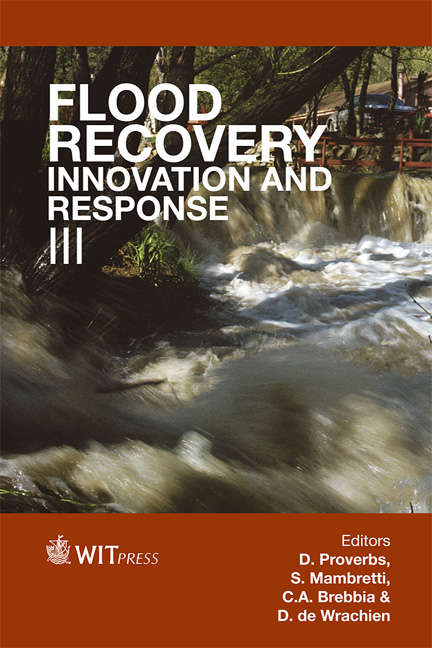The Role Of Solid Waste Management As A Response To Urban Flood Risk In Developing Countries, A Case Study Analysis
Price
Free (open access)
Transaction
Volume
159
Pages
12
Page Range
193 - 204
Published
2012
Size
393 kb
Paper DOI
10.2495/FRIAR120161
Copyright
WIT Press
Author(s)
J. Lamond1, N. Bhattacharya2 & R. Bloch3
Abstract
Solid waste management is a large and growing problem for countries in the developing world and is often a neglected aspect of urban management. However, poor waste management can contribute to the impact of urban flooding by blocking drainage, increasing debris and harbouring disease vectors. A review of the literature and analysis of case studies (both from the literature and from examples collected in the preparation of a global urban flood handbook) confirm that solid waste management is an emerging issue in flood risk management practice. Approaches to improve waste management included large municipal programmes and locally based community schemes. It was seen to be important that the management of waste is adopted as part of a wide integrated flood management programme. The research demonstrates that waste management can be an effective response to flood risk but, in order to remain successful, it requires that sufficient commitment and engagement can be mobilised in the long term. Keywords: waste management, integrated flood management, urban flash flooding, developing countries, community response. 1 Introduction The management of waste is a perennial problem in developed and developing countries [1–3] and it is an increasingly serious issue in respect of flood risk management [4] for the following main reasons: The poor disposal of waste frequently leads to blockages in drainage and watercourses [5, 6], this effectively
Keywords
waste management, integrated flood management, urban flash flooding, developing countries, community response





